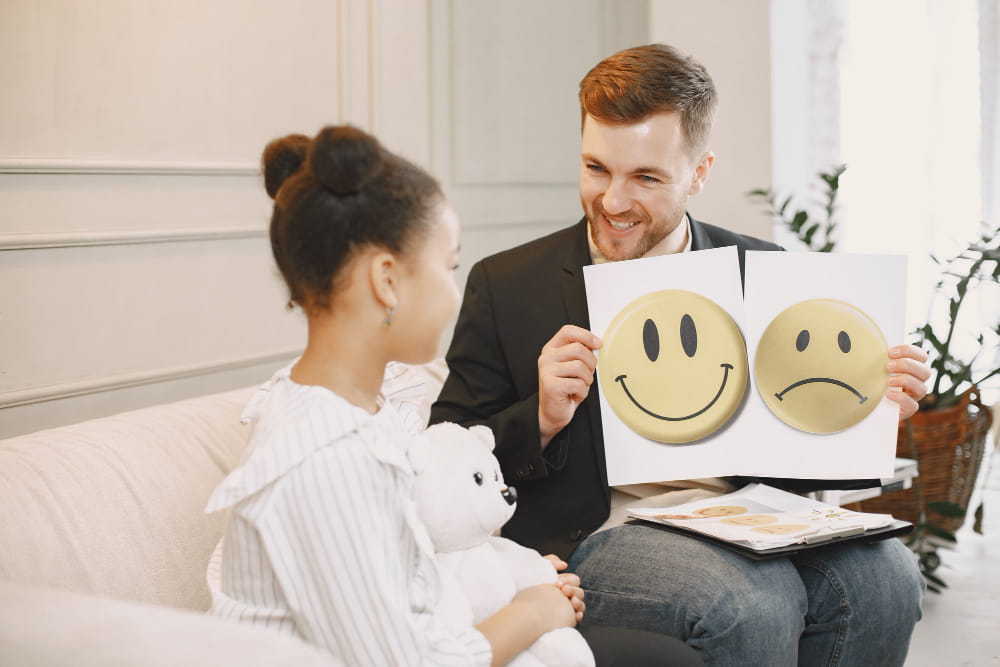Depression is one of the most common and debilitating mental health challenges people face today. It affects how you think, feel, and function on a daily basis. In recent years, online therapy has emerged as a convenient and often more accessible form of care, especially for those who may struggle to access in-person sessions. But how effective is online therapy when it comes to treating something as complex and deeply rooted as depression?
The short answer is yes, online therapy can be highly effective for treating depression. With the right tools, therapists, and platforms, many people are finding meaningful relief and support through virtual care. If you’re considering online treatment for depression, here’s what you should know to make an informed decision.
Why Online Therapy Works
Accessibility Without Barriers
One of the greatest benefits of online depression treatment is that it removes many of the logistical barriers that come with traditional therapy. No commuting, no sitting in waiting rooms, and no need to live near a therapist’s office. You can receive care from your home, your car, or even during a break at work. This convenience makes it easier to stay consistent, which is crucial when dealing with depression.
A Comfortable Space to Open Up
For some people, the idea of sitting face-to-face with a therapist in a clinical setting is intimidating. Online sessions—whether through video calls, phone, or secure messaging—can make opening up feel less vulnerable. Being in your own space can increase your sense of safety, allowing for deeper conversations sooner in the therapeutic relationship.
More Options, More Flexibility
When you limit your search to local therapists, your choices might be slim, especially if you’re looking for someone who specializes in a specific area of depression, such as postpartum depression, seasonal affective disorder, or trauma-related mood issues. Online therapy opens the door to a wider pool of professionals, giving you the freedom to find someone who truly fits your needs. Many depression consultants online now offer sliding scale fees, weekend availability, or short-notice bookings, which adds to the overall flexibility.
Evidence-Based and Research-Backed
Multiple studies have shown that online cognitive behavioral therapy (CBT) and other evidence-based treatments can be just as effective as face-to-face sessions. For mild to moderate depression, outcomes from online treatment for depression often mirror those from in-person therapy. Clients report reductions in depressive symptoms, improvements in mood, and increased coping skills.
What to Expect from Online Therapy for Depression
If you’re new to the idea of online therapy, here’s what your journey might look like:
- Initial assessment: Most therapists will begin with a detailed intake session to understand your history, symptoms, and goals.
- Customized treatment plan: Just like in-person therapy, your therapist will work with you to set goals and select methods that suit your individual needs.
- Consistent sessions: You’ll typically meet weekly or biweekly, using video conferencing or secure chat, depending on the service.
- Homework and progress tracking: Many online platforms offer worksheets, mood tracking tools, and exercises to help you apply what you learn between sessions.
Is Online Therapy Right for Everyone?
While online therapy is effective for many people, it’s important to recognize that it’s not a one-size-fits-all solution. Individuals with severe depression, suicidal thoughts, or those in crisis may need a more intensive level of care, such as inpatient treatment or emergency psychiatric services. However, for those experiencing mild to moderate symptoms or those looking for continued care after a more intensive program, depression consultant online services can be a valuable and sustainable option.
Tips to Make the Most of Online Therapy
- Be honest and open: Your therapist can only help you with what you share. Don’t hold back, even if you feel uncomfortable.
- Find a private, quiet space: Treat your session with the same importance as an in-person appointment. Choose a distraction-free environment.
- Stay consistent: Regular sessions lead to better outcomes. Try not to skip appointments unless absolutely necessary.
- Engage between sessions: Use digital tools, practice coping strategies, and complete suggested exercises to reinforce your progress.
Final Thoughts
Online therapy is more than just a modern convenience, it’s a lifeline for many people battling depression. Whether you’re looking for structure, support, or guidance through a difficult phase, seeking online treatment for depression can be an empowering first step toward healing. With licensed professionals, flexible platforms, and evidence-based practices, online care continues to evolve and meet people where they are.
If you’ve been hesitant about asking for help or unsure about where to start, know that help is just a few clicks away. Online therapy may not be a magic fix, but it is a powerful tool in the journey toward better mental health.




